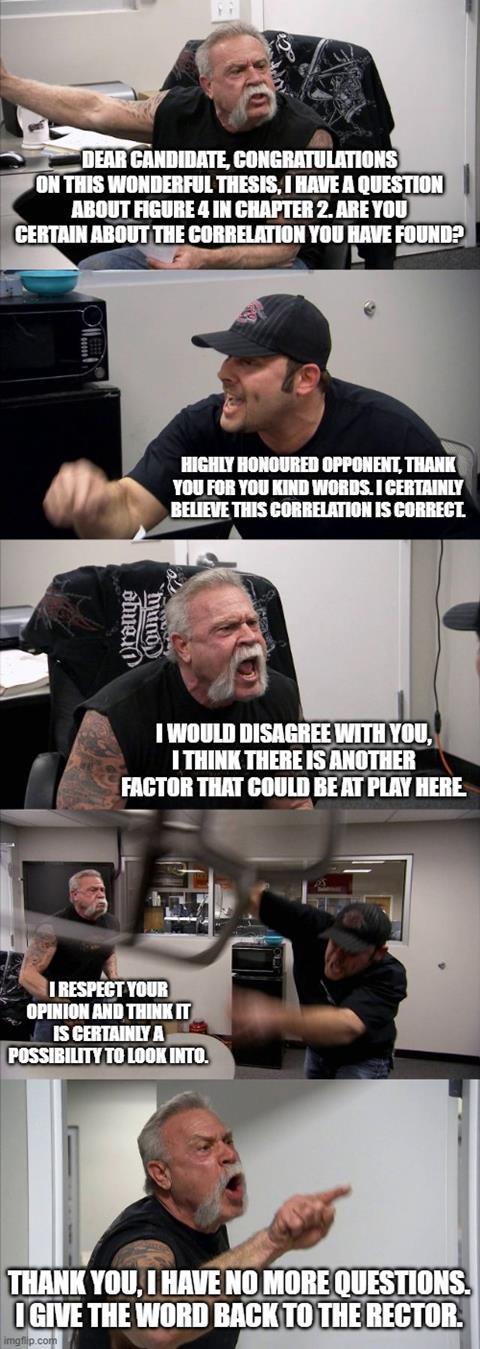Sjoerd Rijpkema doesn’t quite understand the exceedingly detailed questions that PhD candidates get during their defense ceremony. However, he recently came across a PhD defense with a markedly different approach.

Although I no longer work in academia, I regularly visit the Aula in Nijmegen. I consider myself fortunate to be able to attend the PhD defences of friends and former colleagues. These usually concern molecular chemistry — organic, systems, or biochemistry — and the opponents invariably focus on the finer details. A misplaced comma in a figure, a mechanism that works slightly differently or a statement that the opponent believes to be incorrect. It often feels as if the candidate is being tested on knowledge that the opponent has long since mastered.
Recently, however, I attended a defence outside my usual area of expertise: environmental chemistry, where models and computers replace the fumehood. I expected yet another barrage of technical questions. Instead, I witnessed something much more valuable: a substantive discussion at a level that really matters.
After all, a thesis has already been checked by three experts prior to the defence. The purpose of the defence is not to make even more corrections, but to test the candidate’s understanding of what their work is. Does the candidate understand the bigger picture? Can they contextualise their work within a broader social framework, consider the implications, and engage in philosophical debate with their critics?
On stage, I saw a scientist being treated as an equal: someone who has proven that they can keep up with the other doctors. In my opinion, this type of defence should become the norm in every field of chemistry.












Nog geen opmerkingen